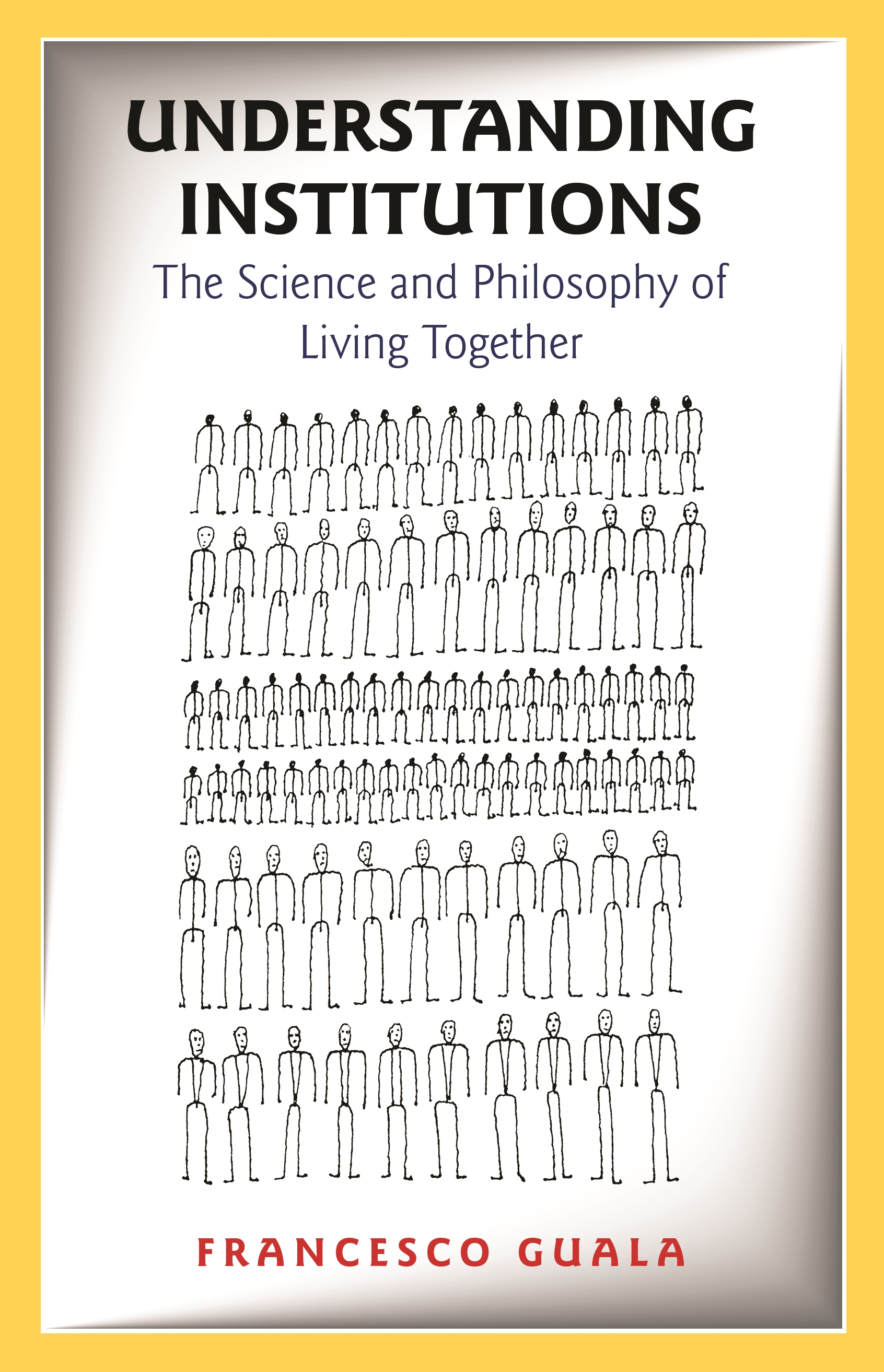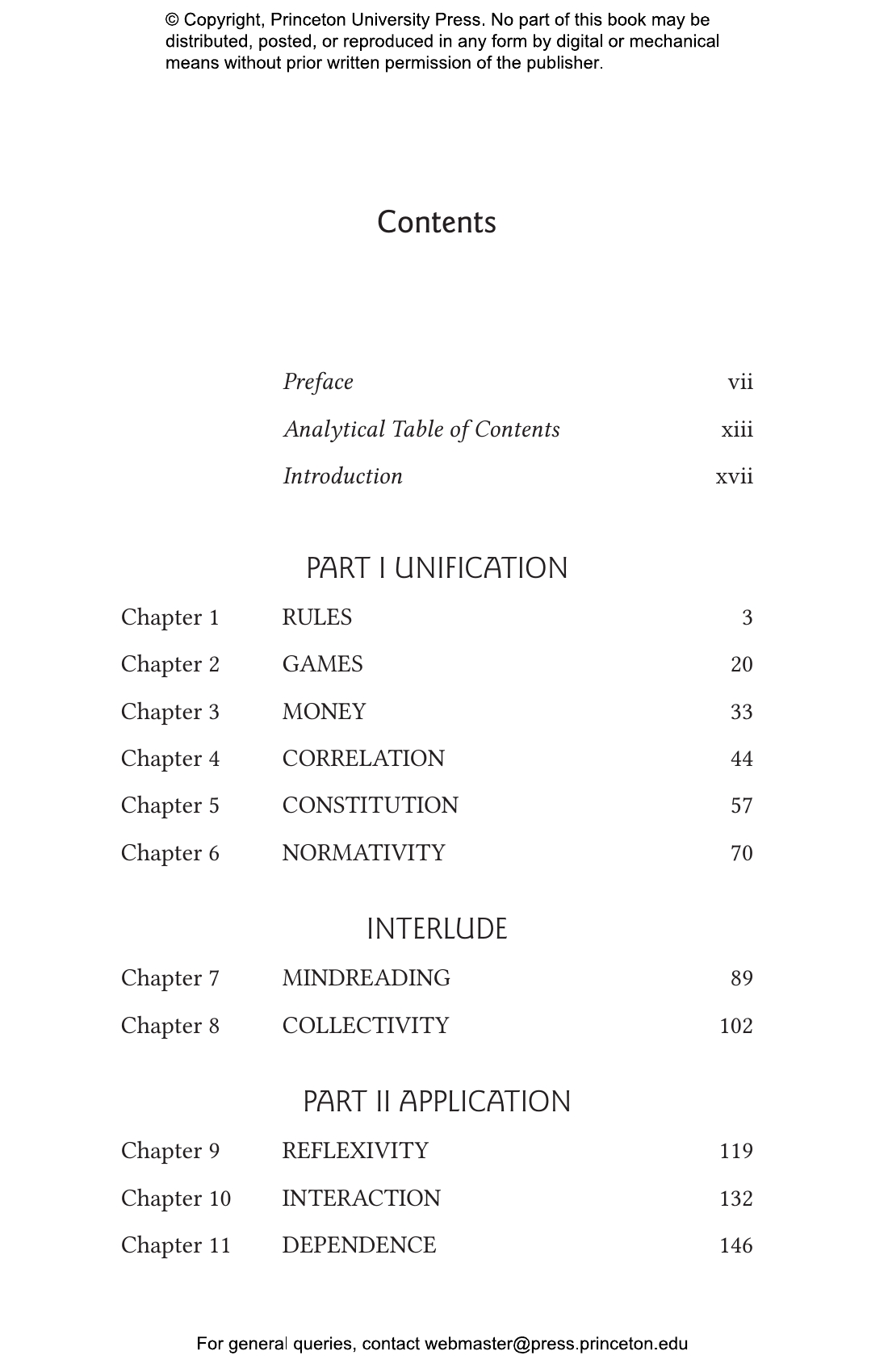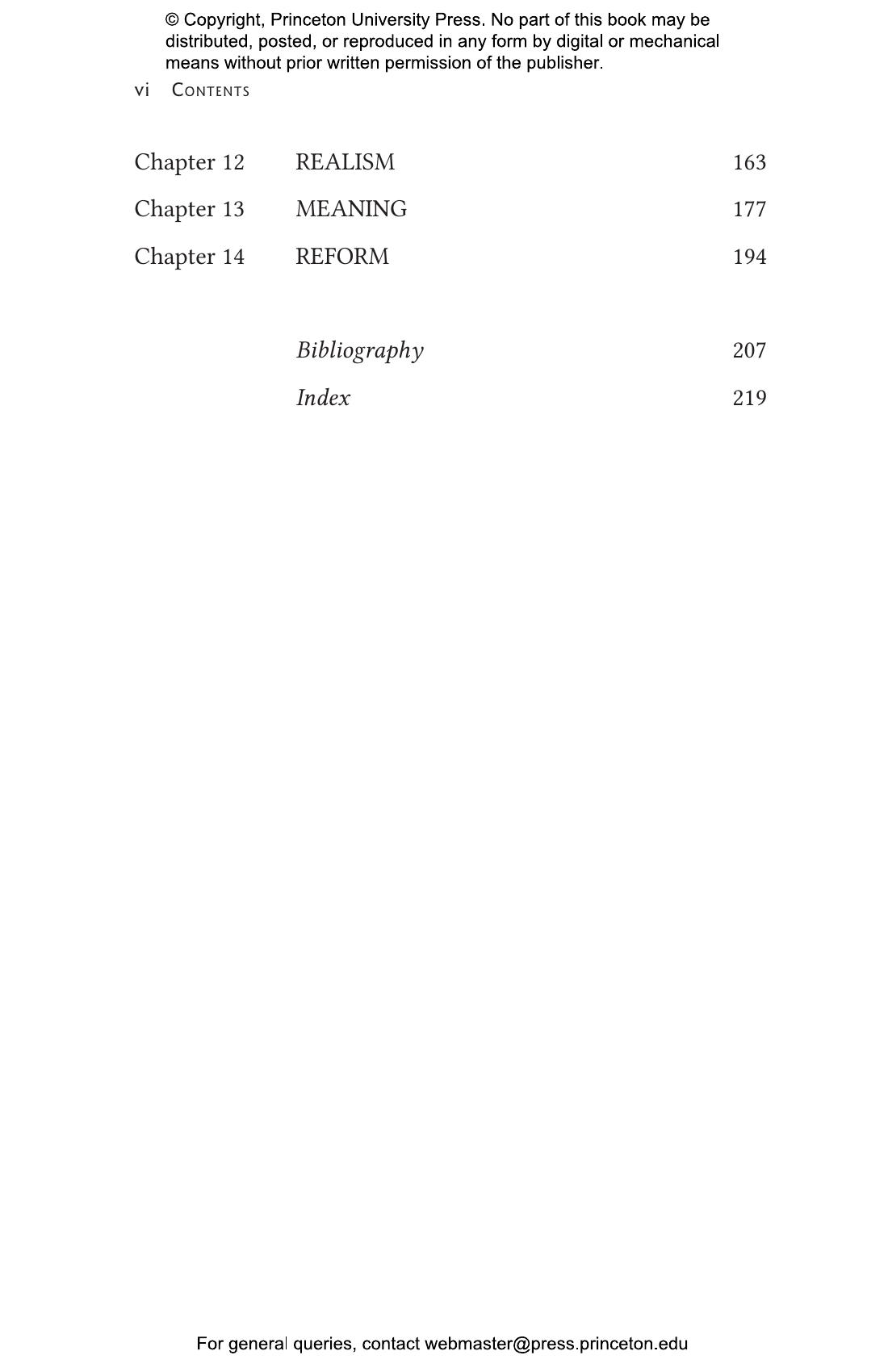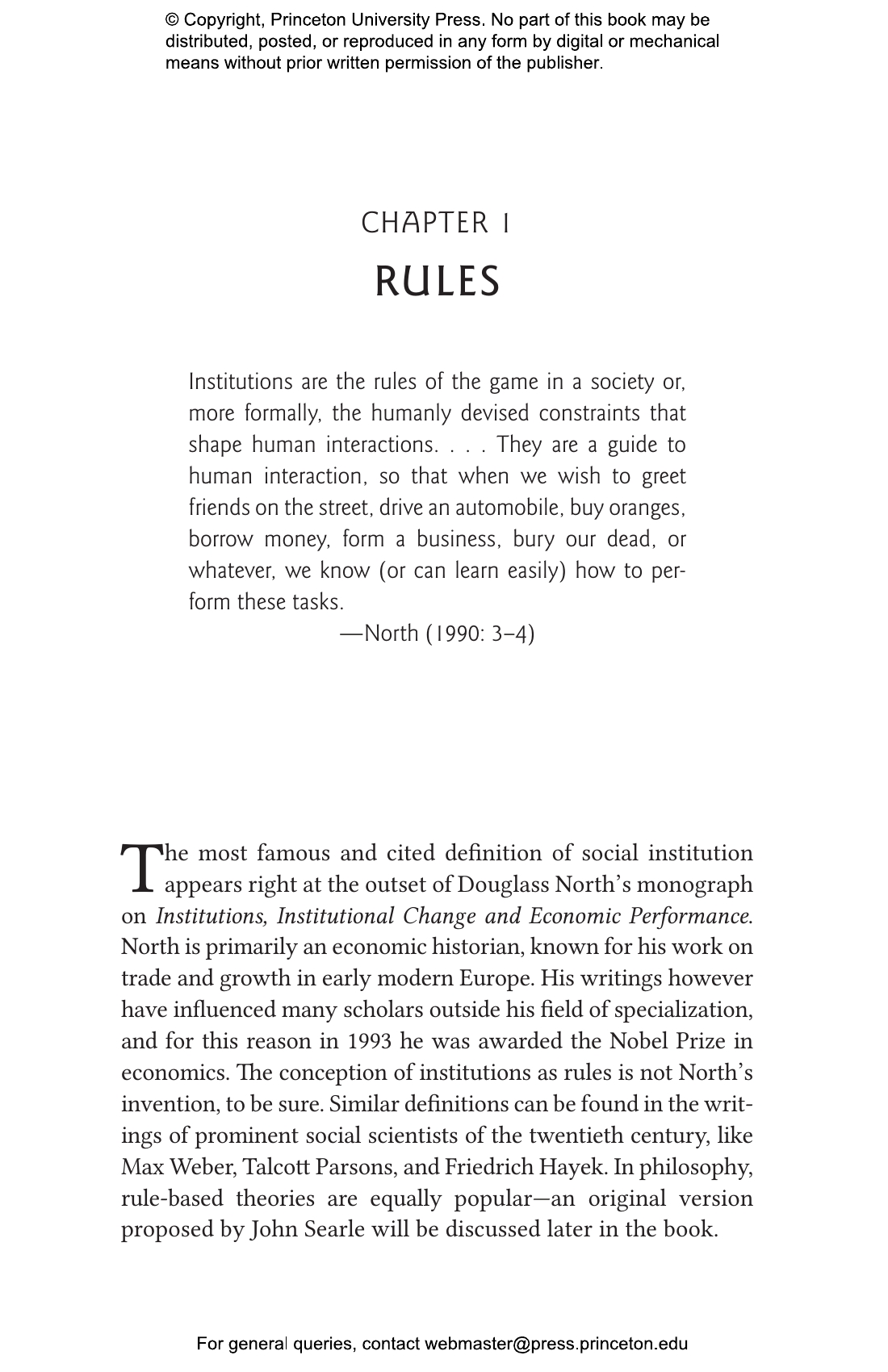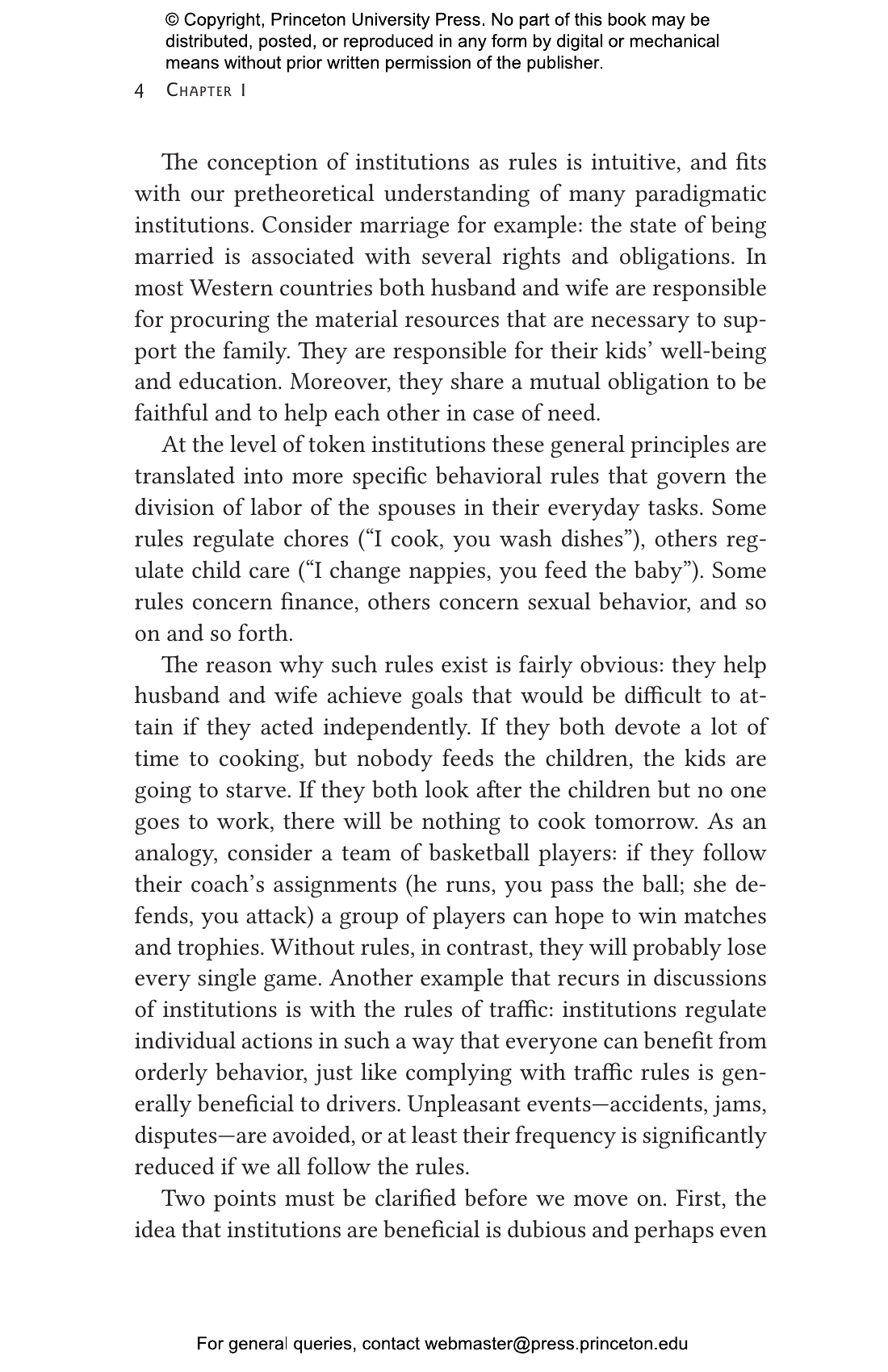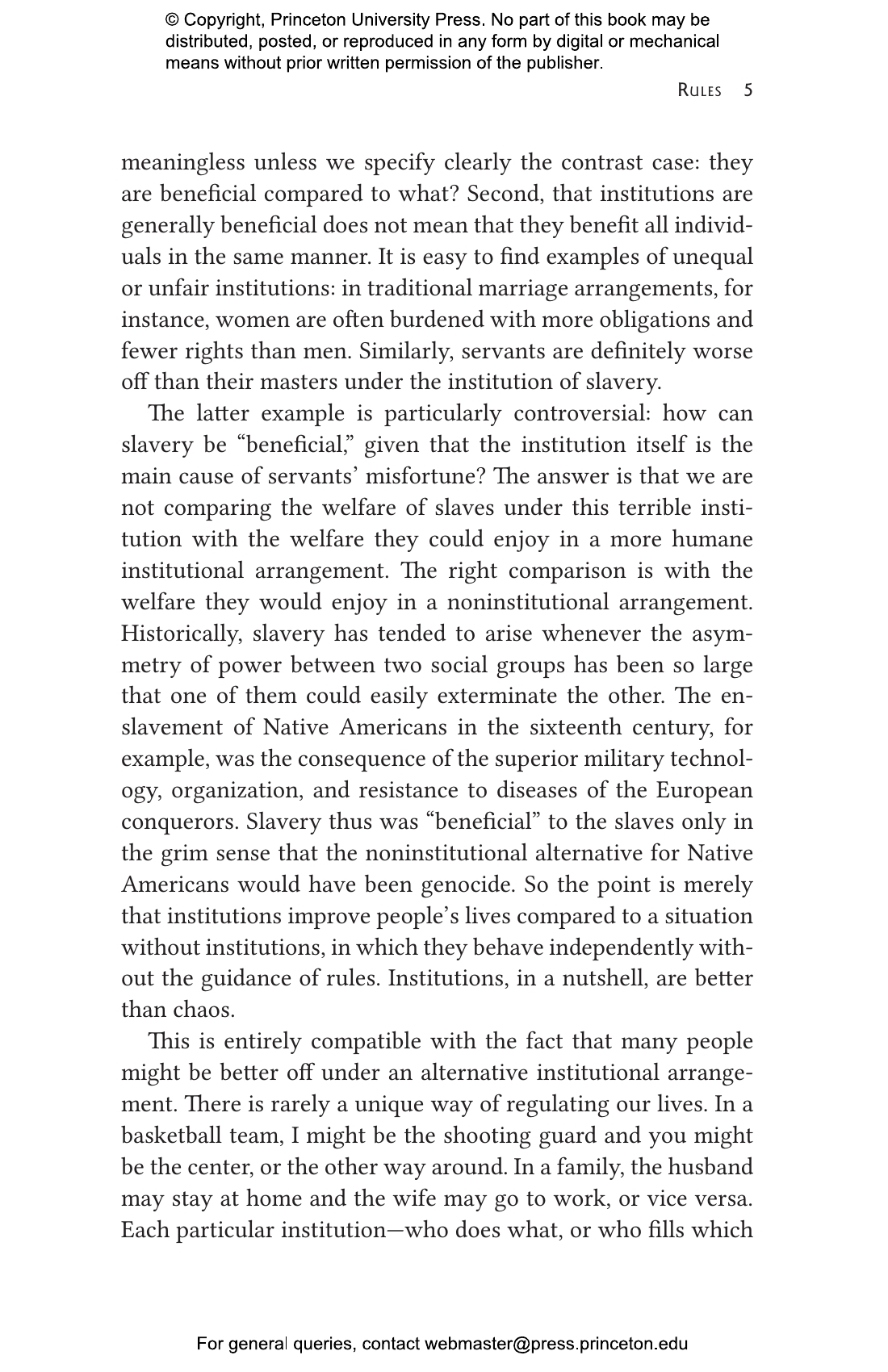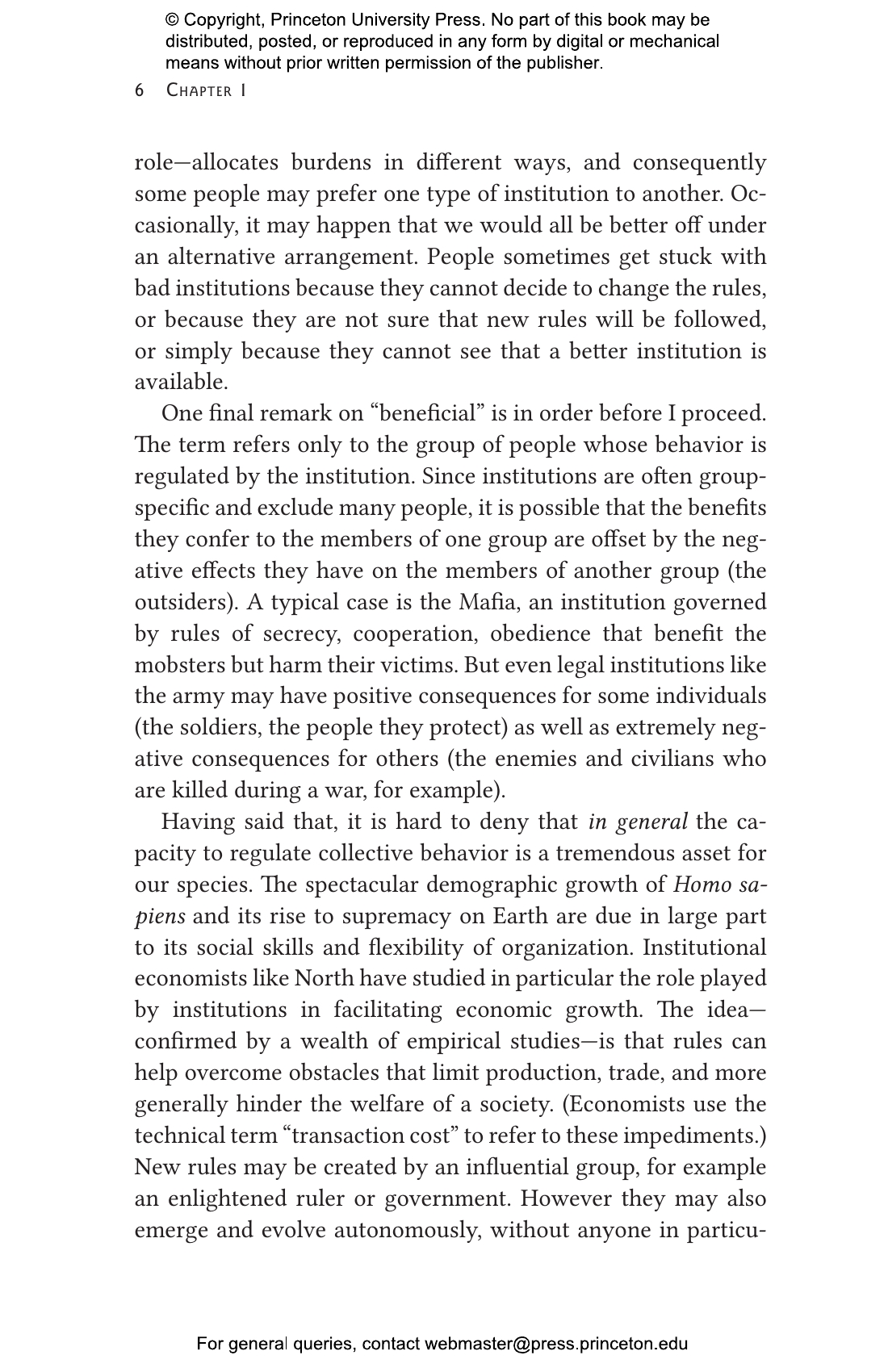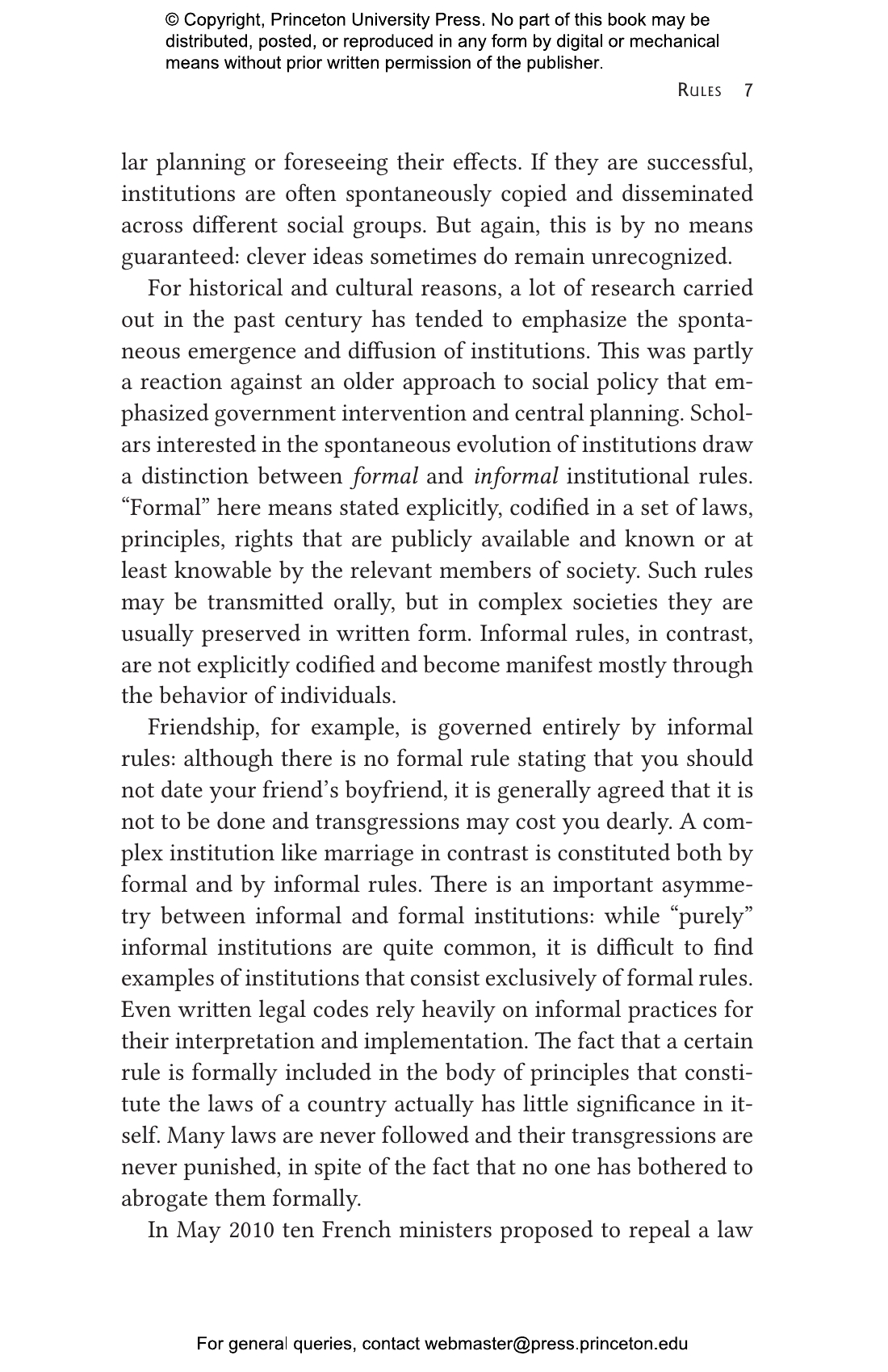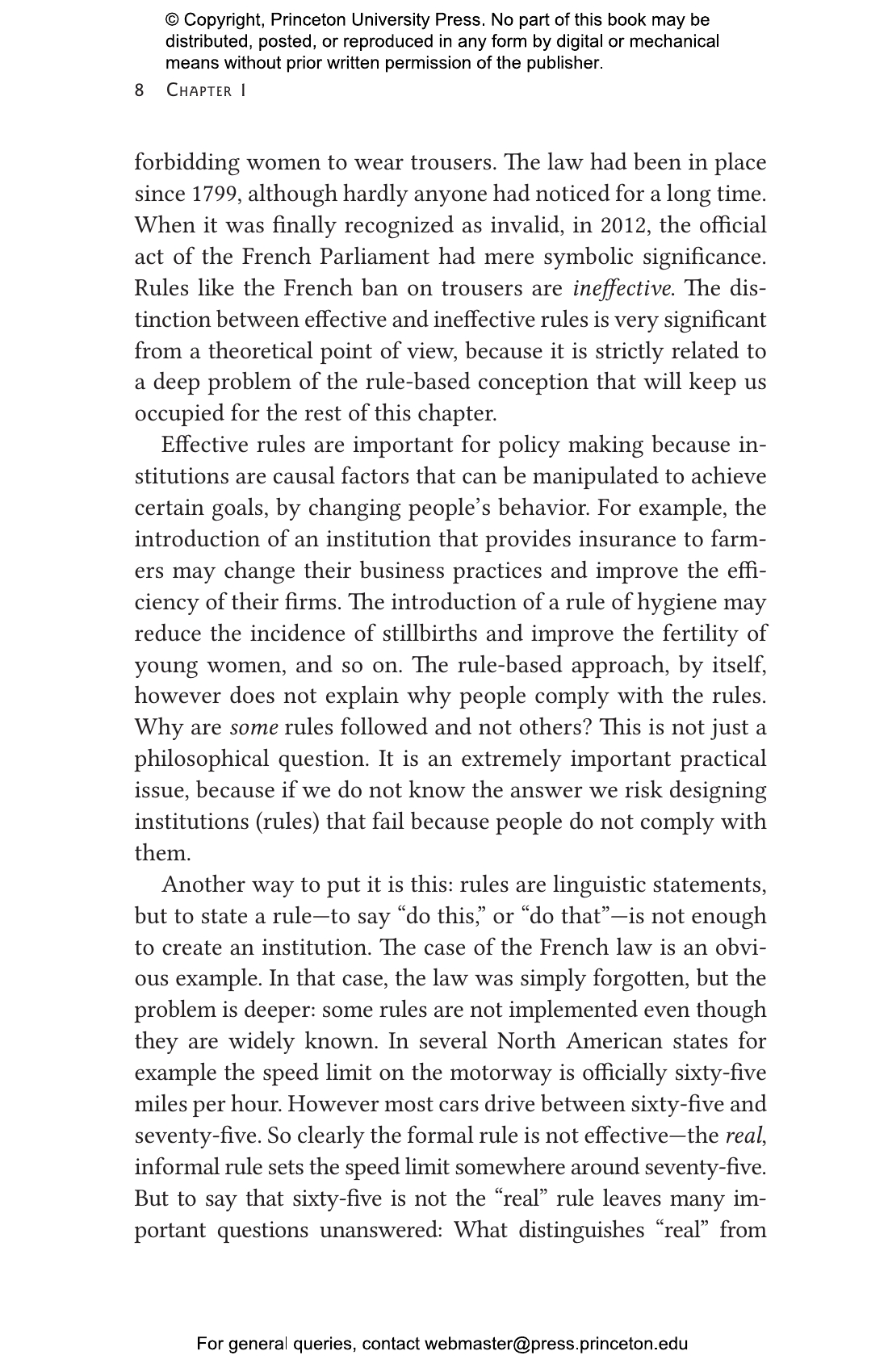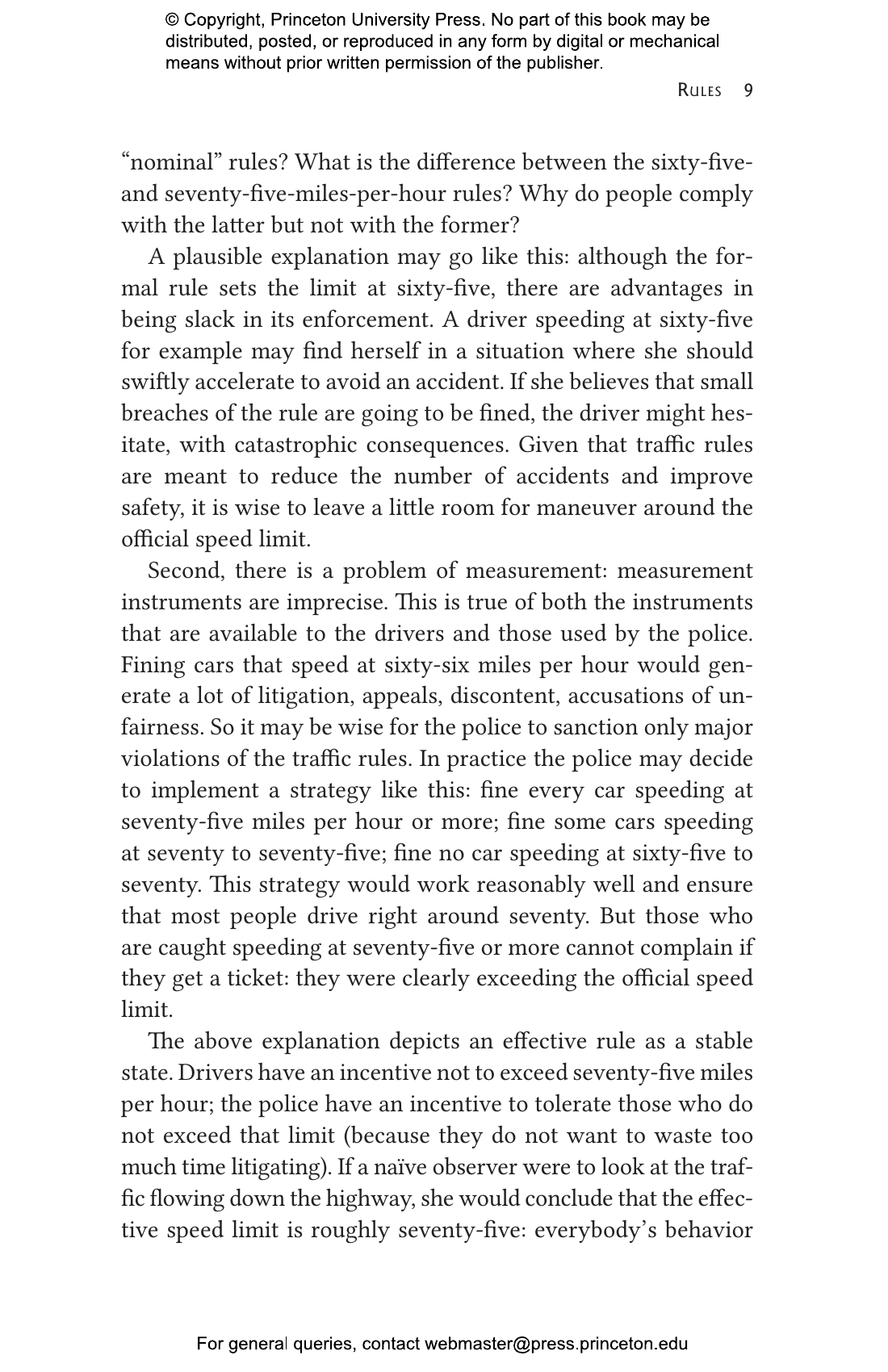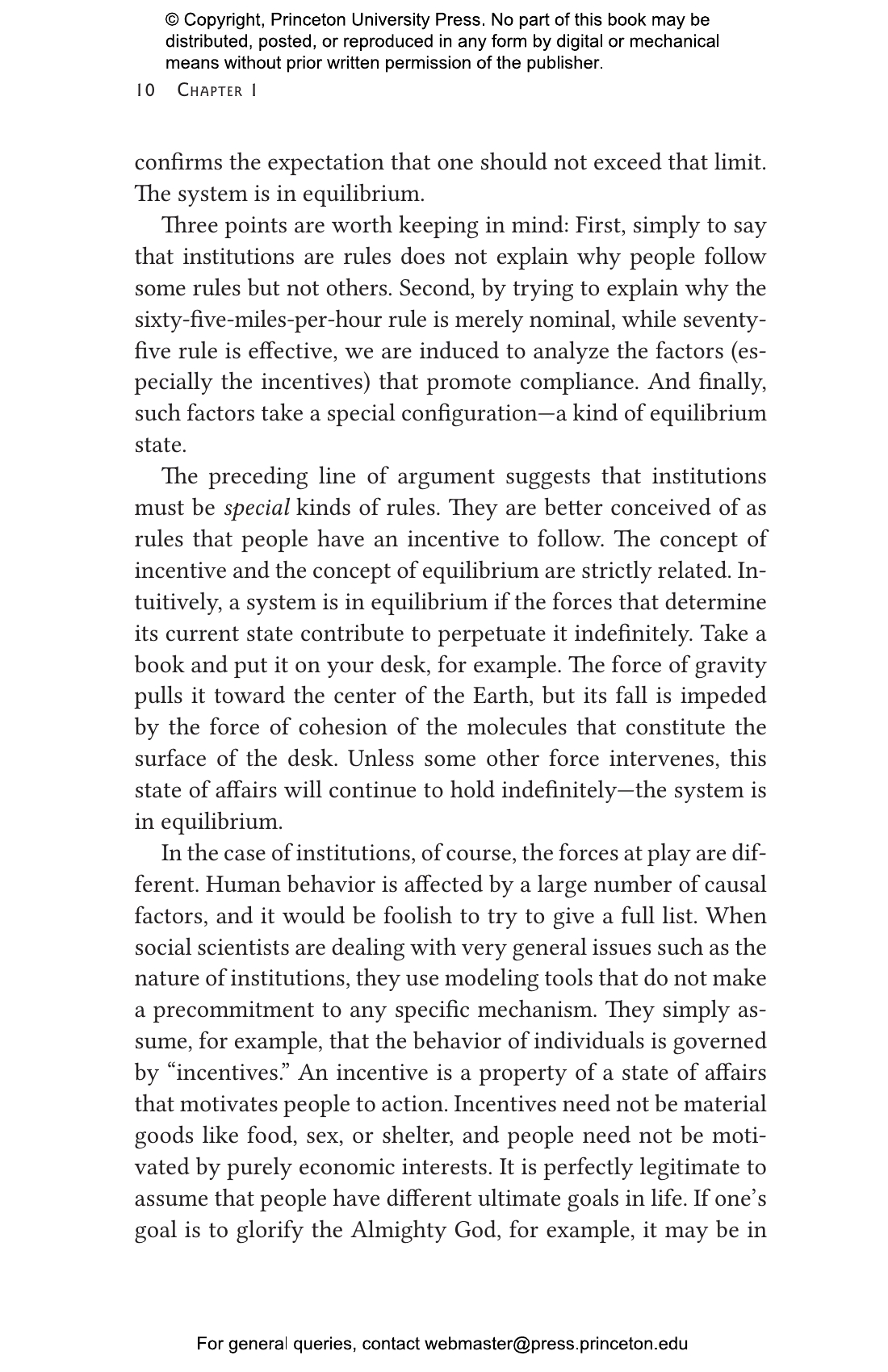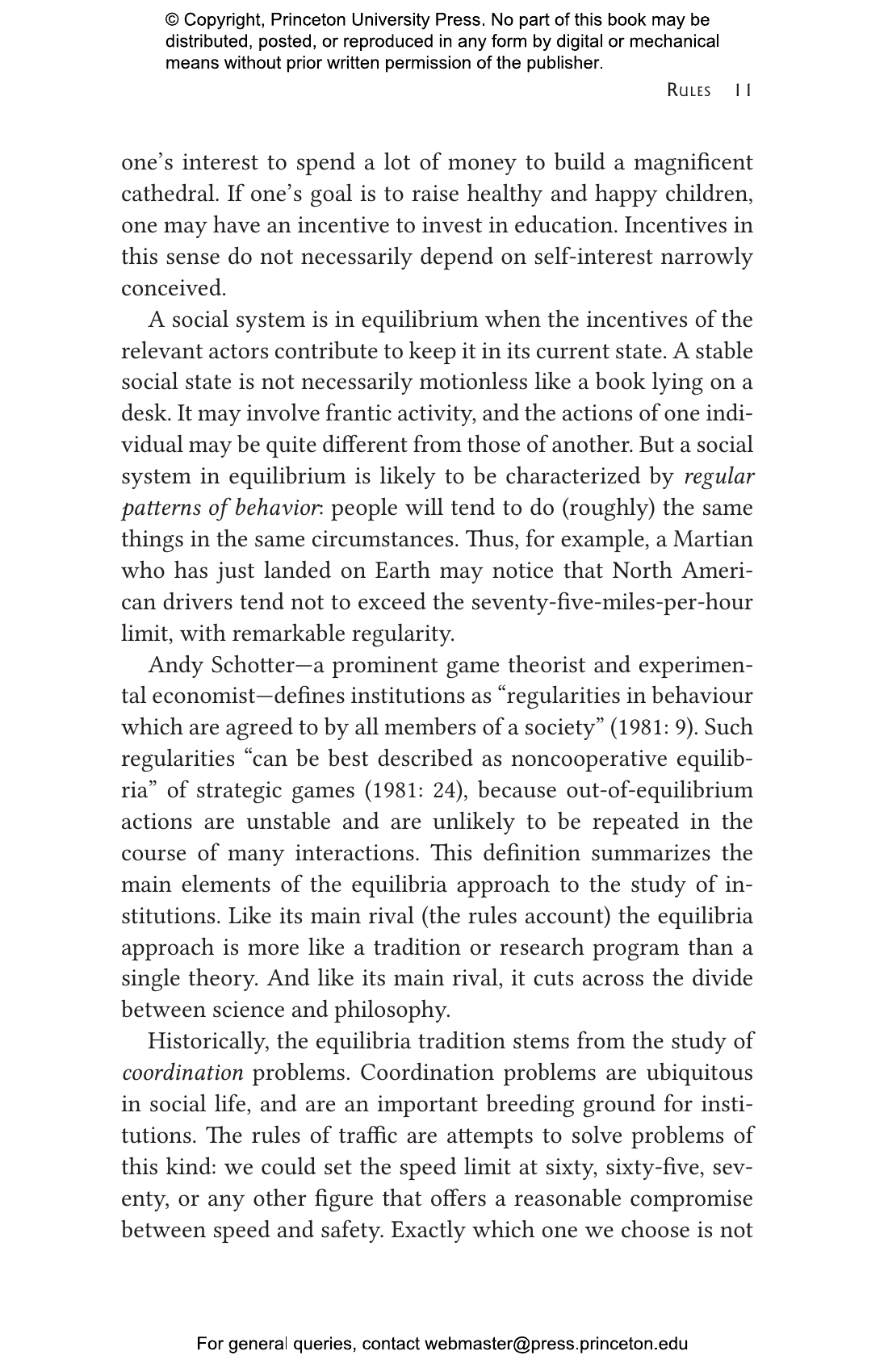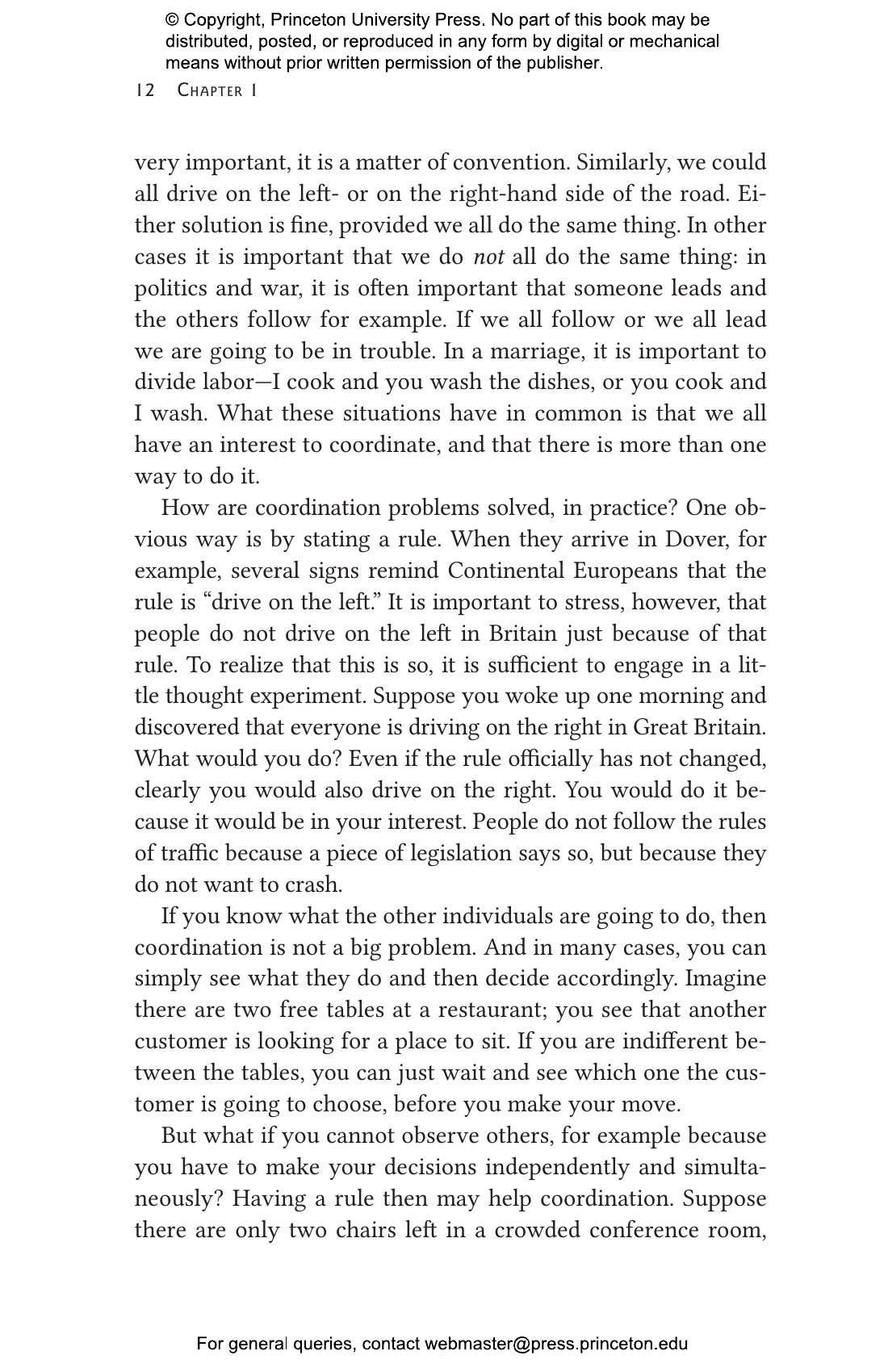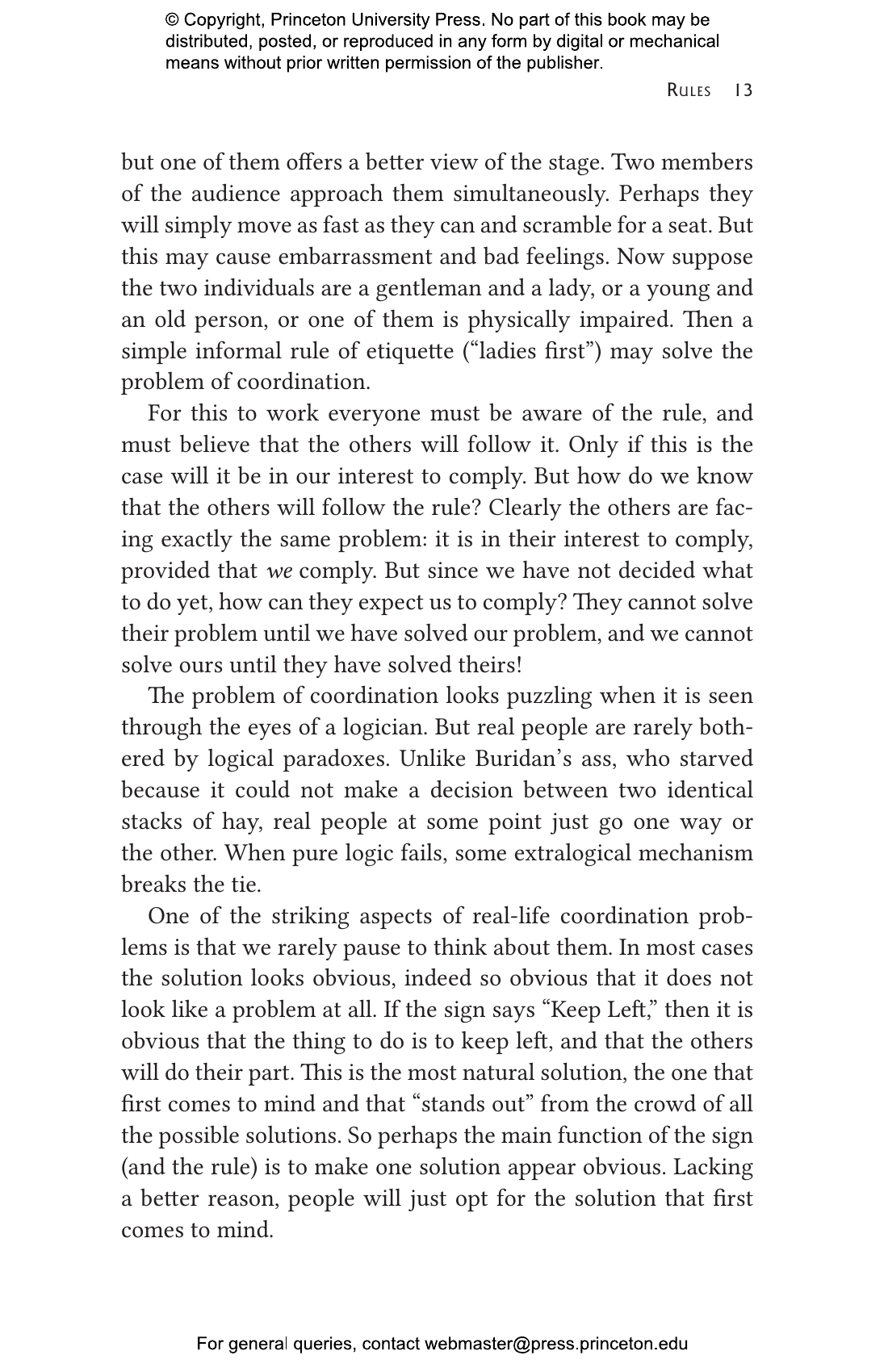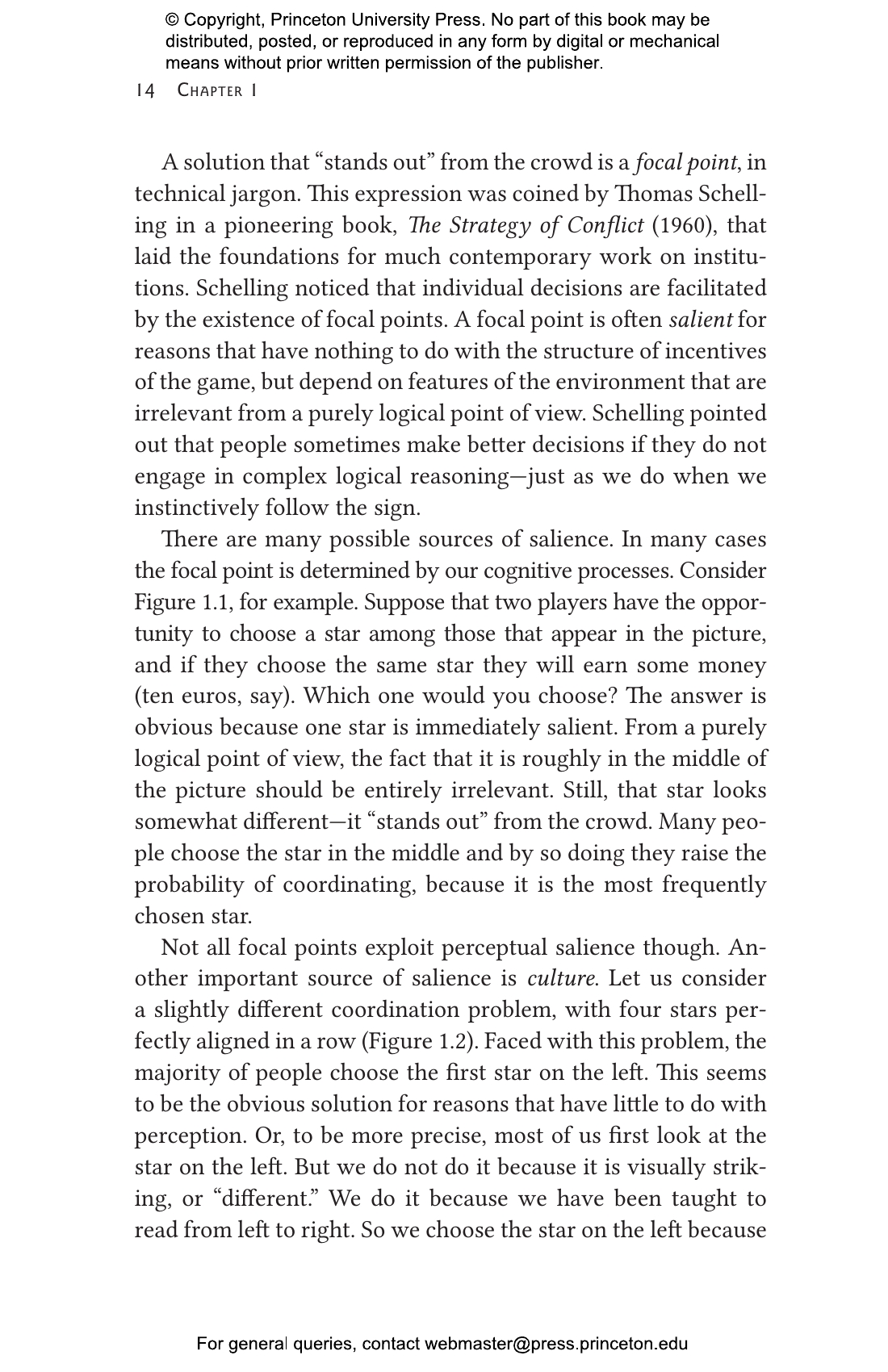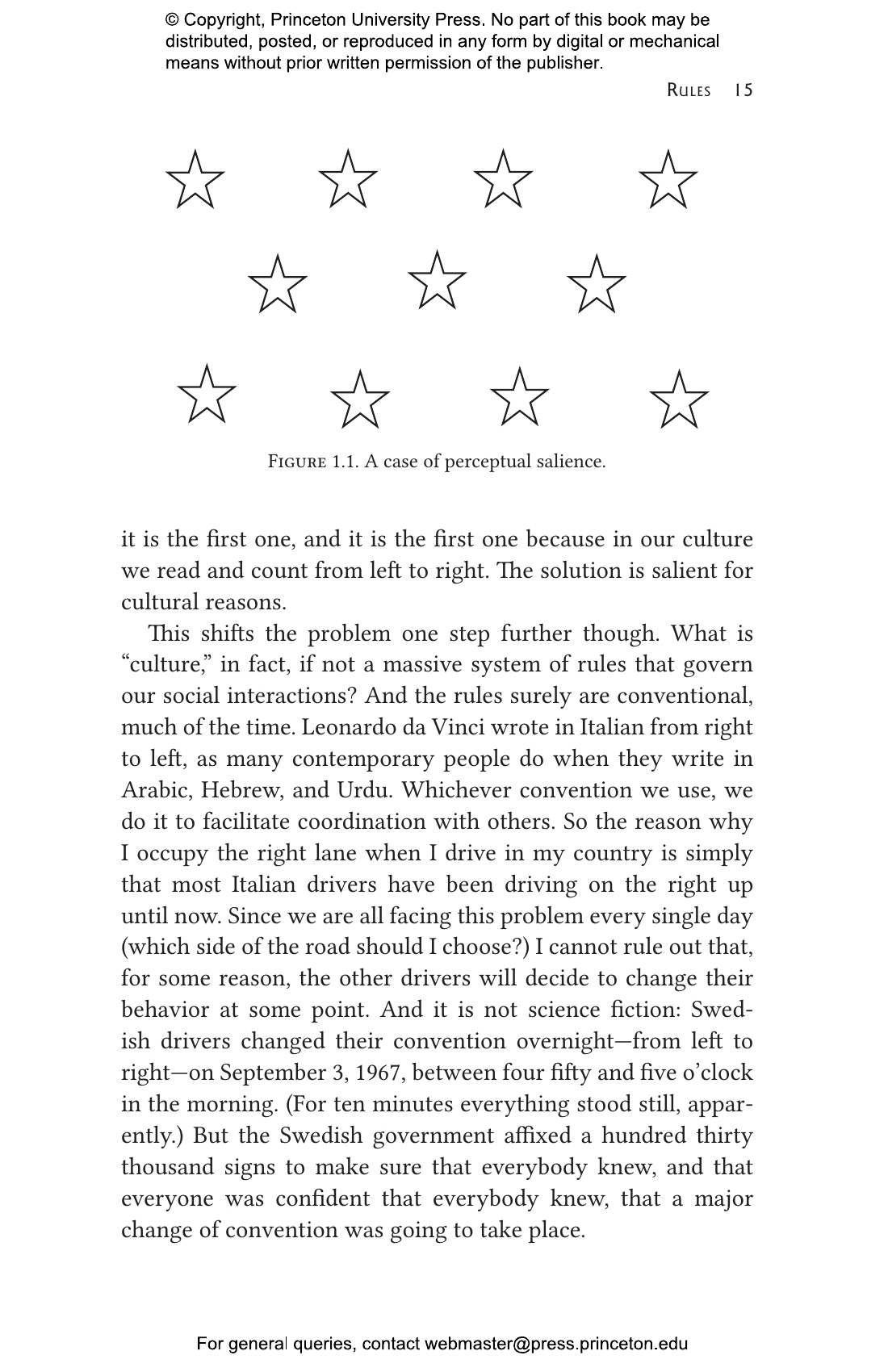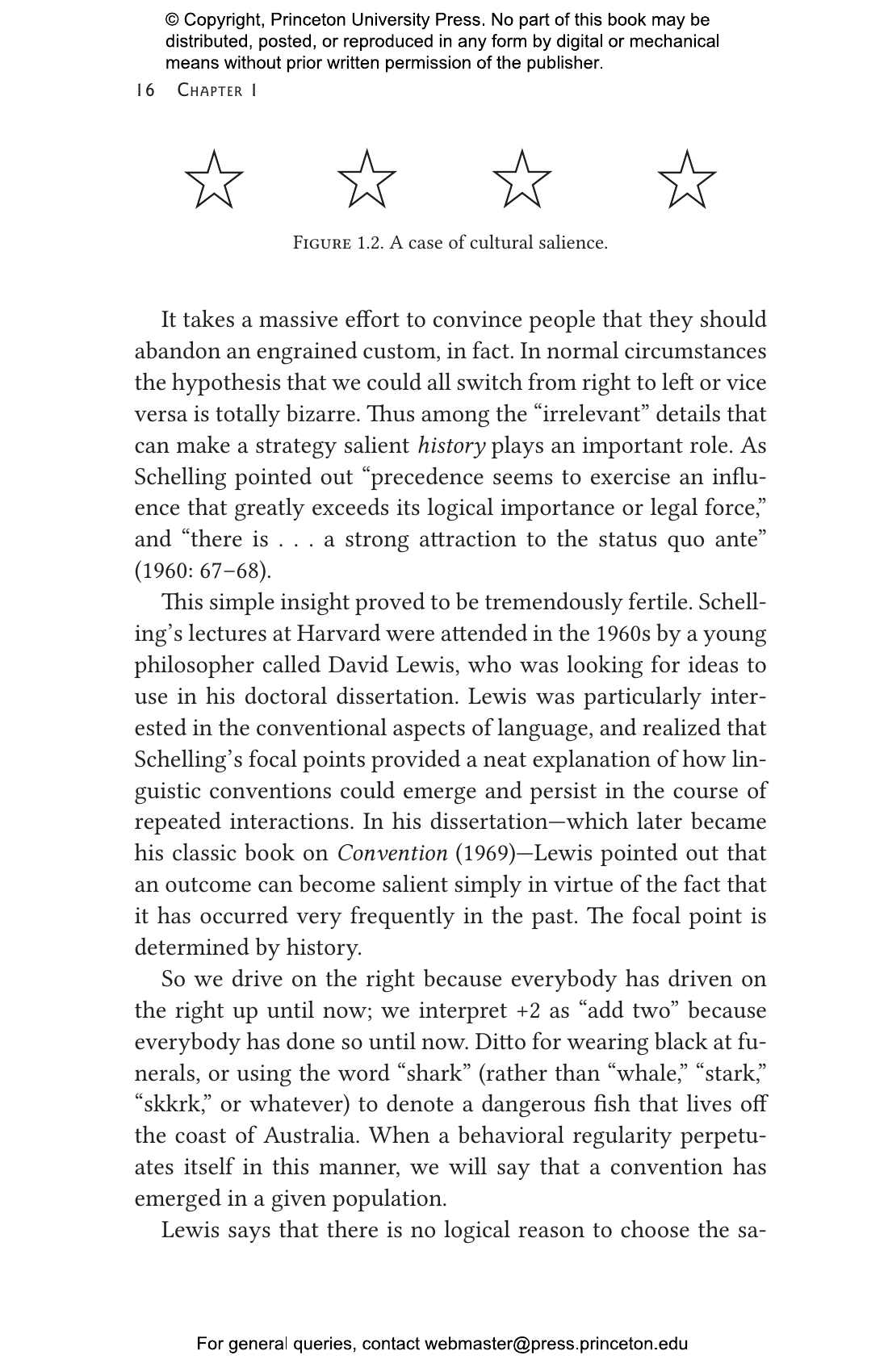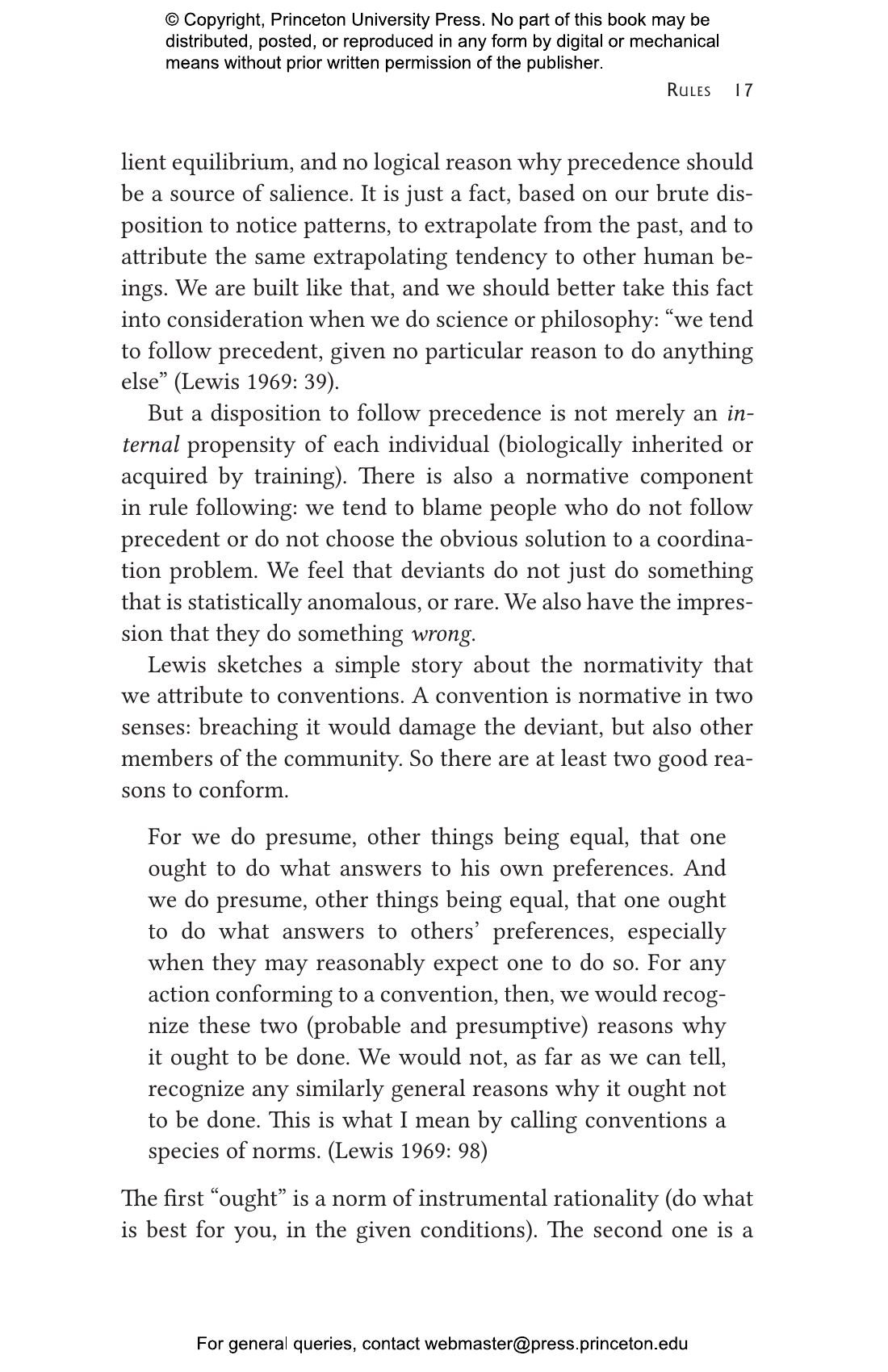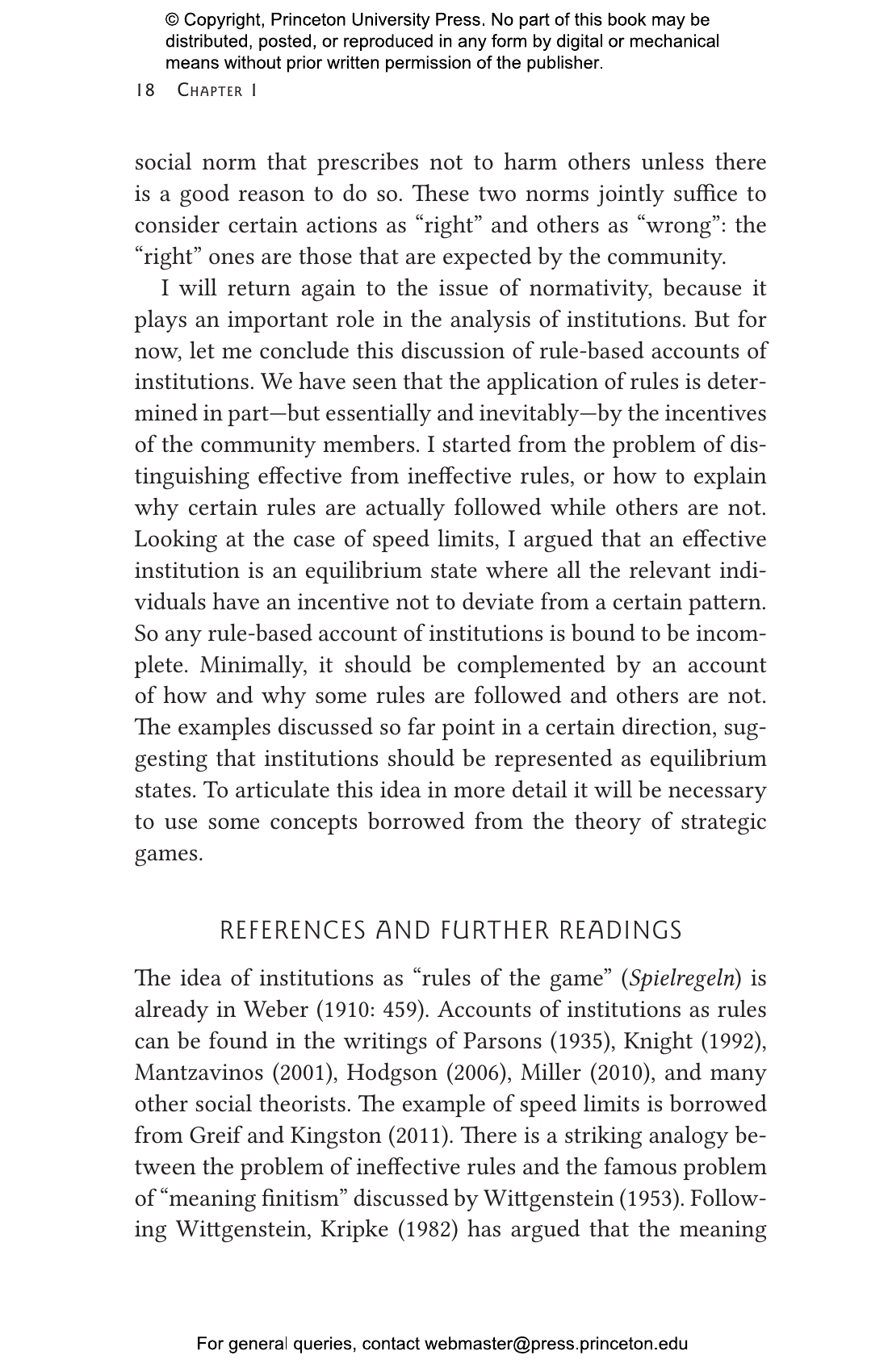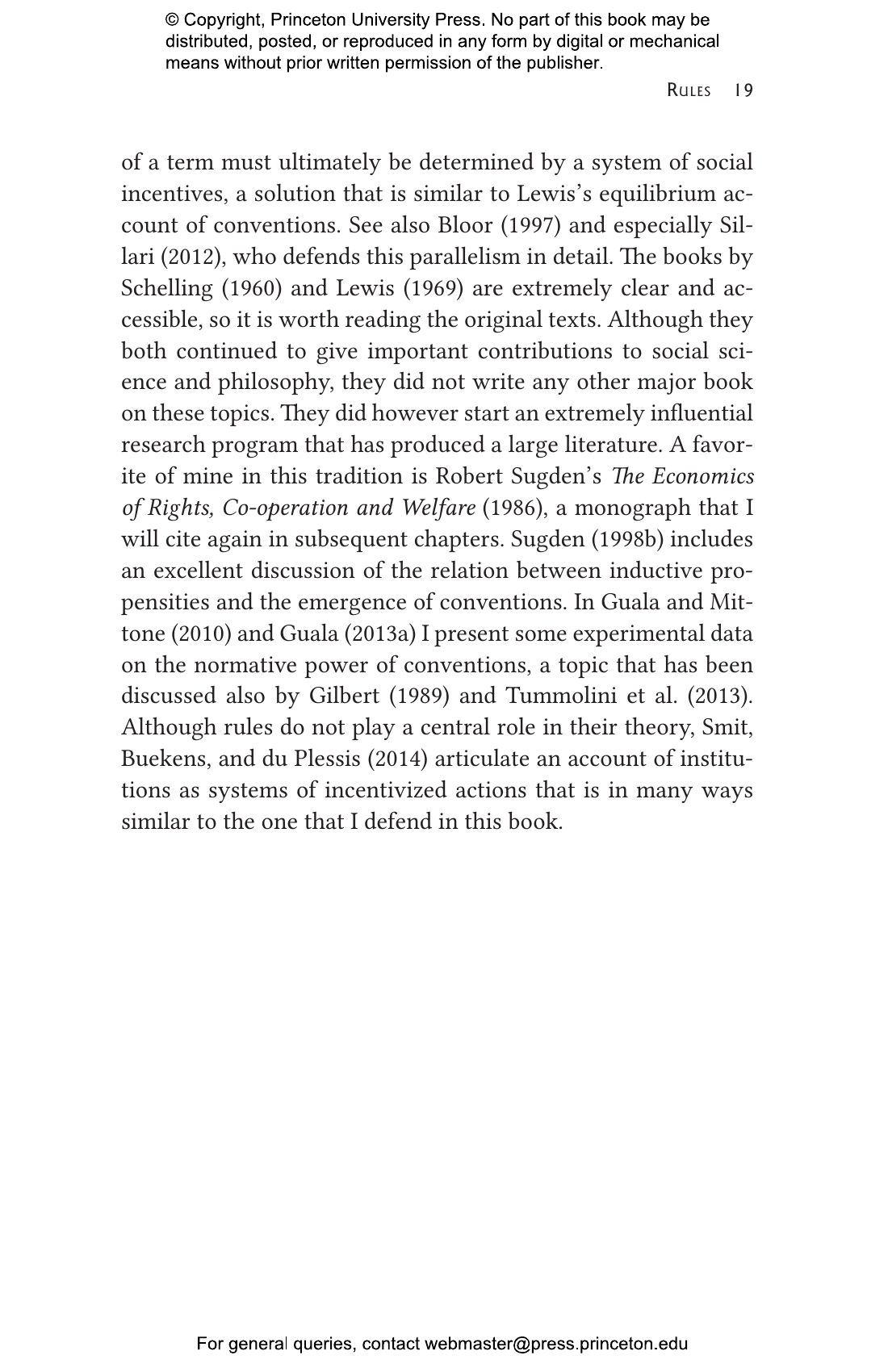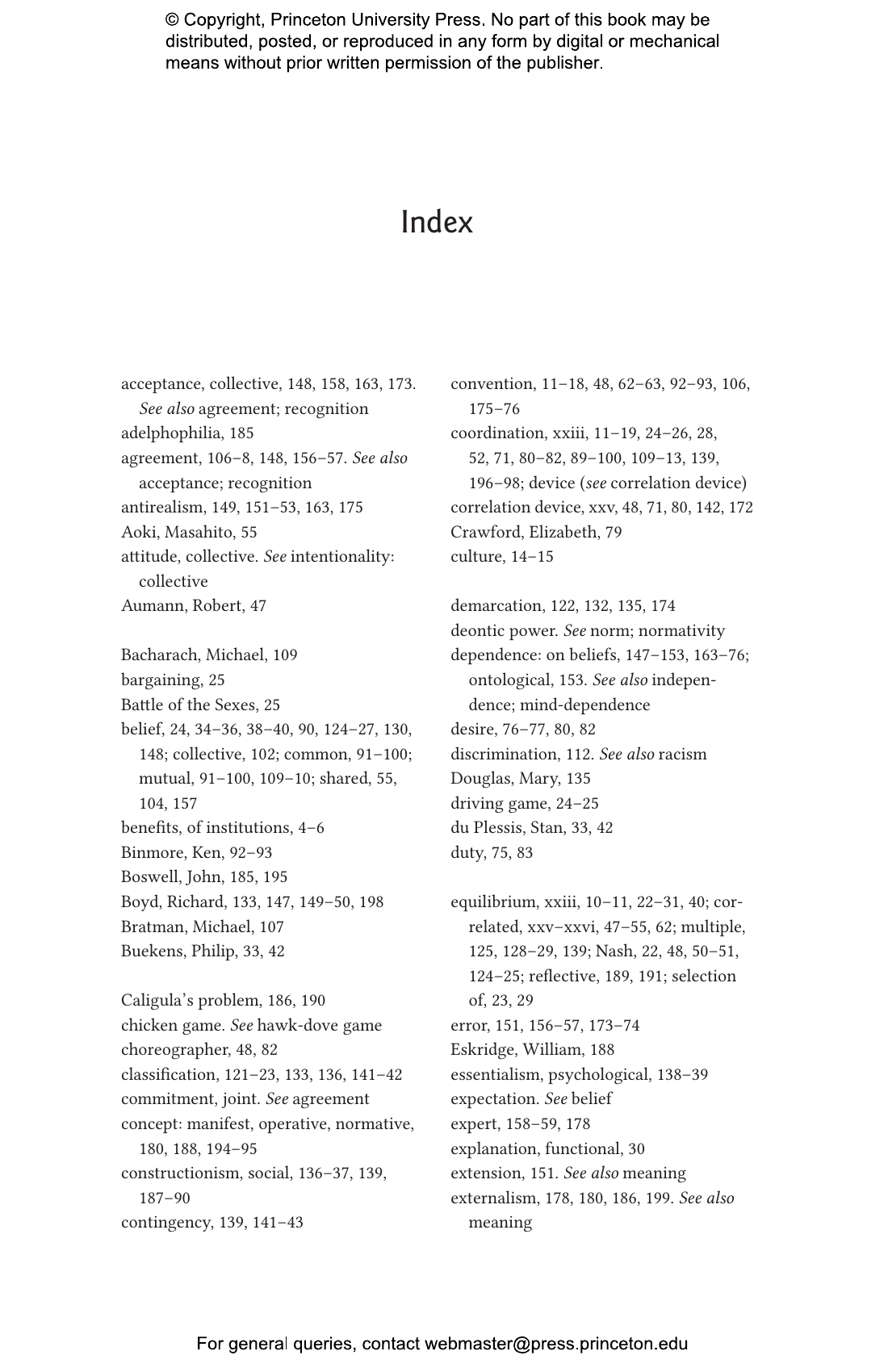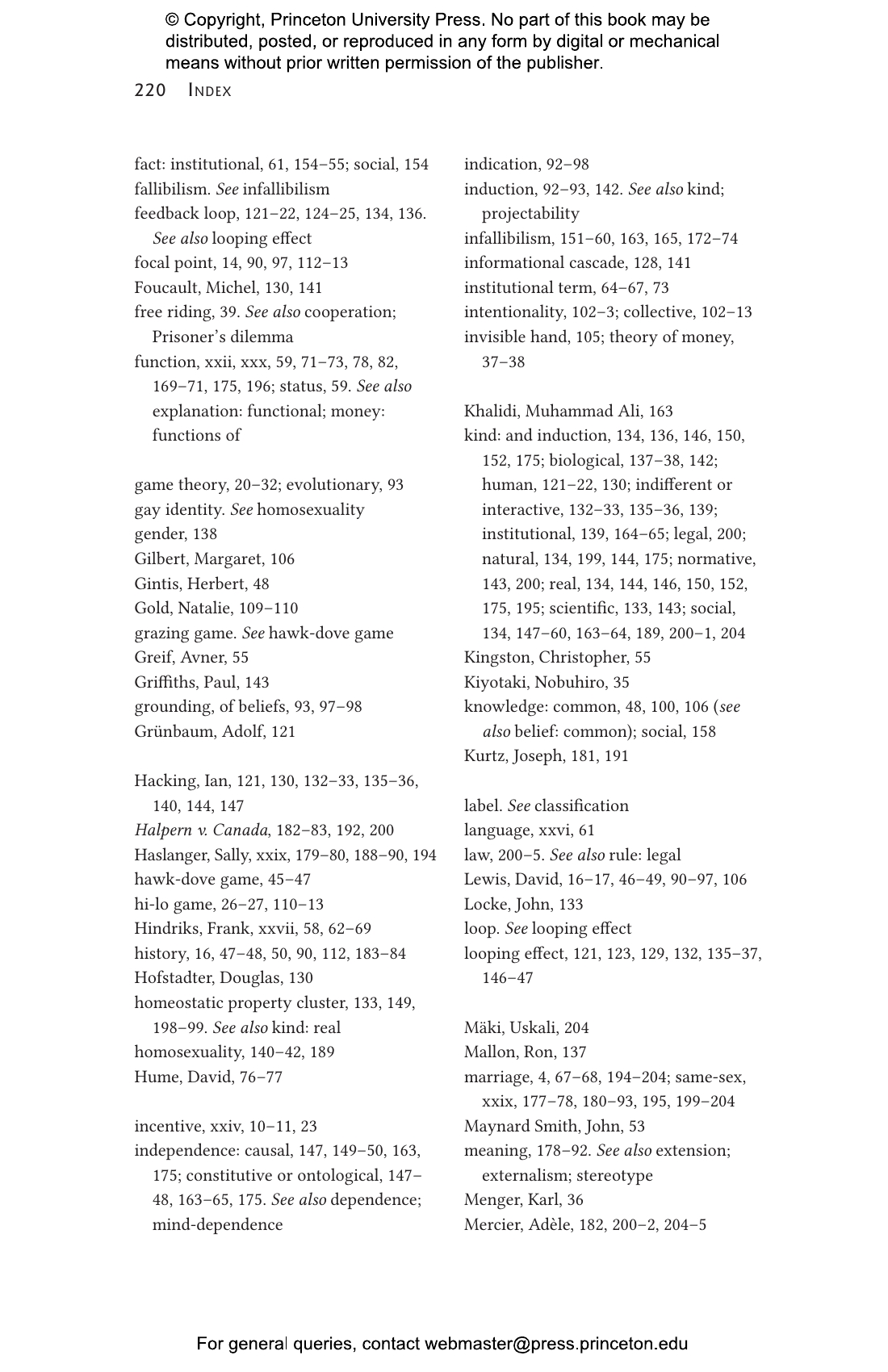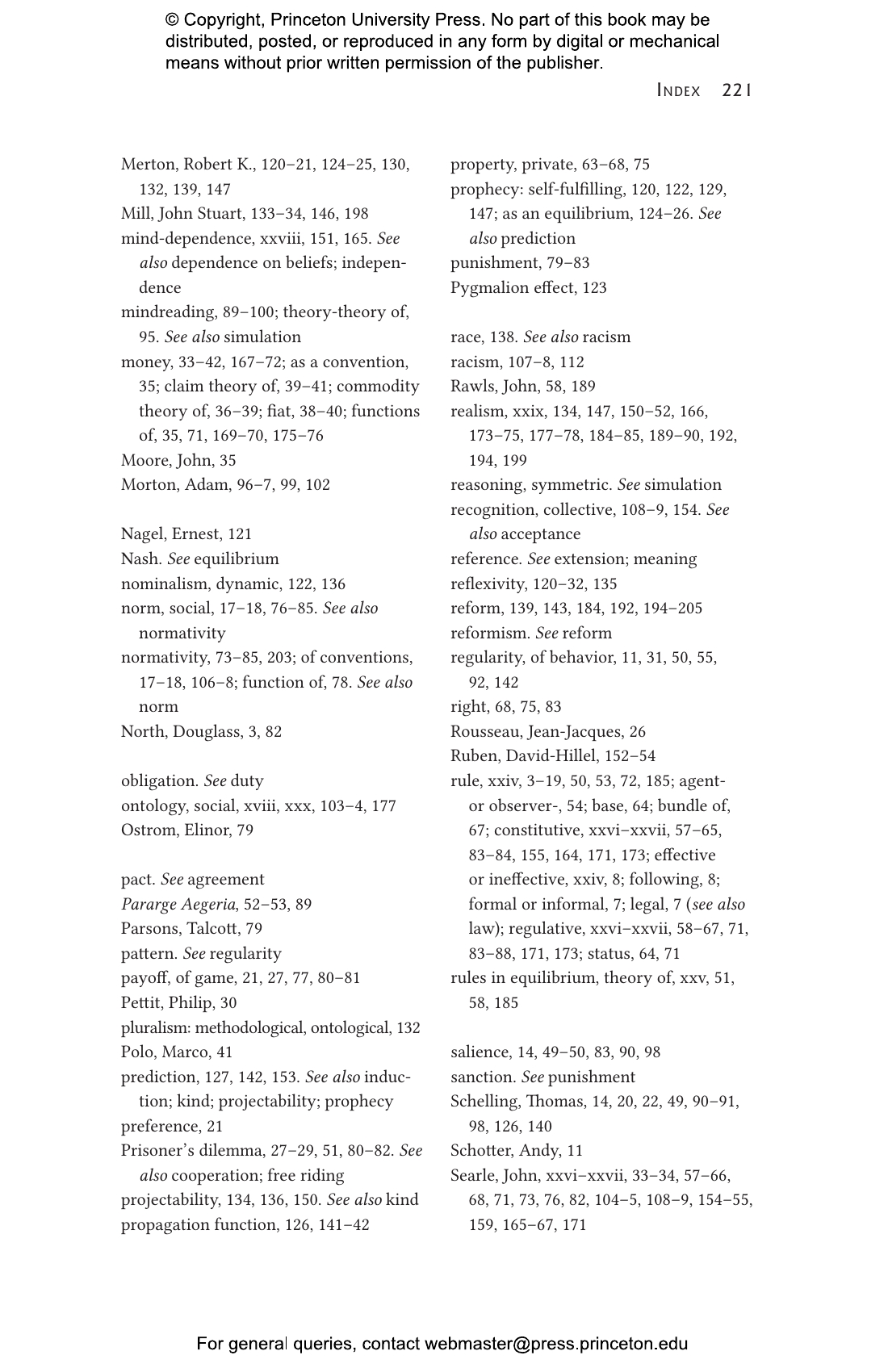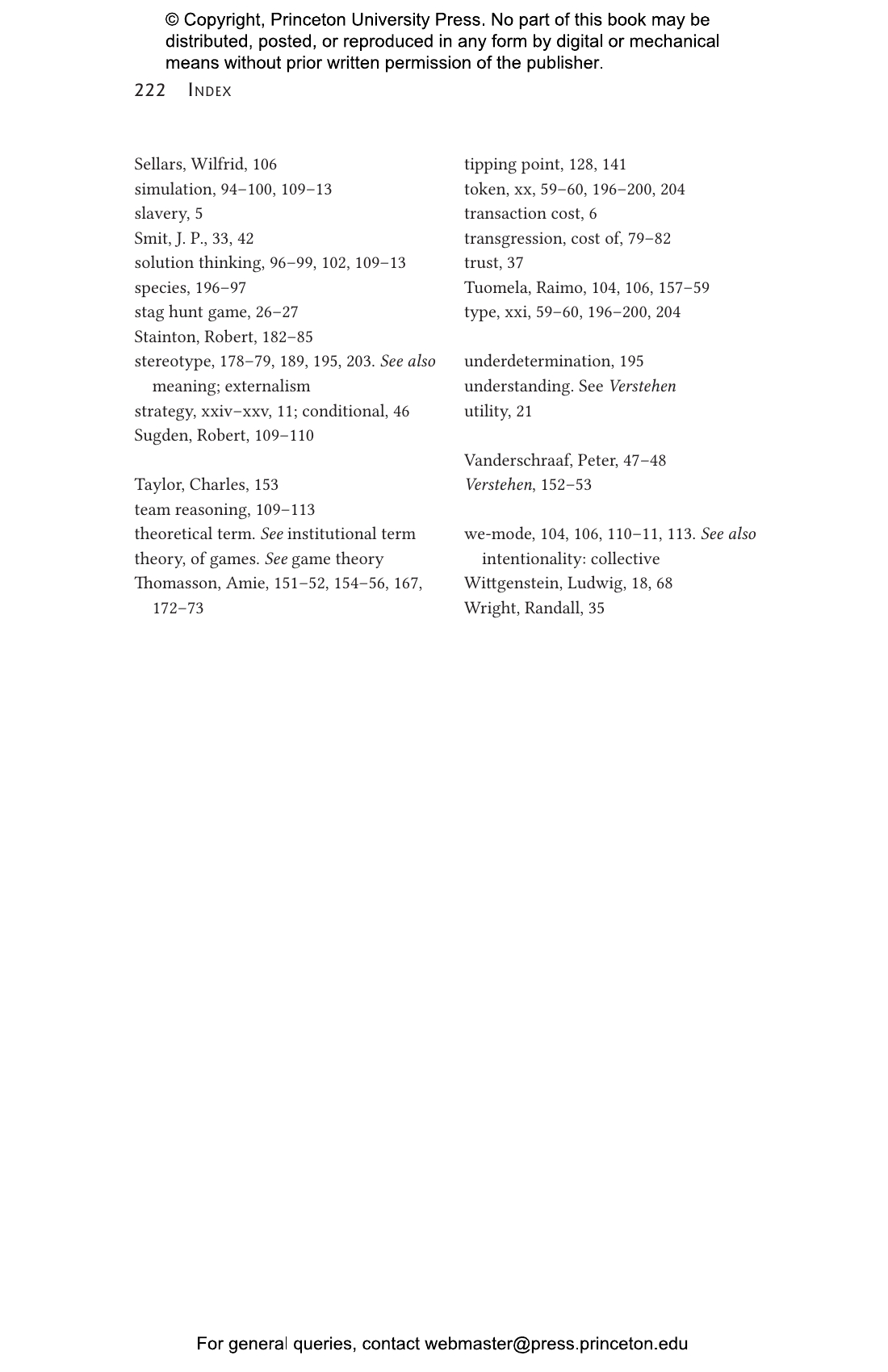Understanding Institutions: The Science and Philosophy of Living Together
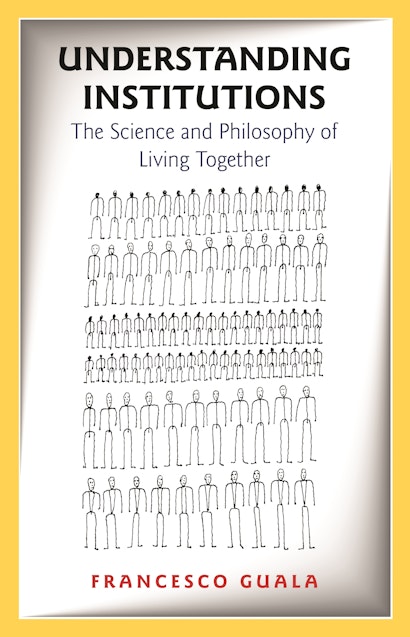

Hardcover
- Price:
- $42.00/£35.00
- ISBN:
- Published:
- Jul 12, 2016
- Copyright:
- 2016
- Pages:
- 256
- Size:
- 5.5 x 8.5 in.
- 15 b/w illus.
- Main_subject:
- Philosophy
Paperback
ebook
Understanding Institutions proposes a new unified theory of social institutions that combines the best insights of philosophers and social scientists who have written on this topic. Francesco Guala presents a theory that combines the features of three influential views of institutions: as equilibria of strategic games, as regulative rules, and as constitutive rules.
Guala explains key institutions like money, private property, and marriage, and develops a much-needed unification of equilibrium- and rules-based approaches. Although he uses game theory concepts, the theory is presented in a simple, clear style that is accessible to a wide audience of scholars working in different fields. Outlining and discussing various implications of the unified theory, Guala addresses venerable issues such as reflexivity, realism, Verstehen, and fallibilism in the social sciences. He also critically analyses the theory of “looping effects” and “interactive kinds” defended by Ian Hacking, and asks whether it is possible to draw a demarcation between social and natural science using the criteria of causal and ontological dependence. Focusing on current debates about the definition of marriage, Guala shows how these abstract philosophical issues have important practical and political consequences.
Moving beyond specific cases to general models and principles, Understanding Institutions offers new perspectives on what institutions are, how they work, and what they can do for us.
Awards and Recognition
- Winner of the 2018 Joseph B. Gittler Award, American Philosophical Association
